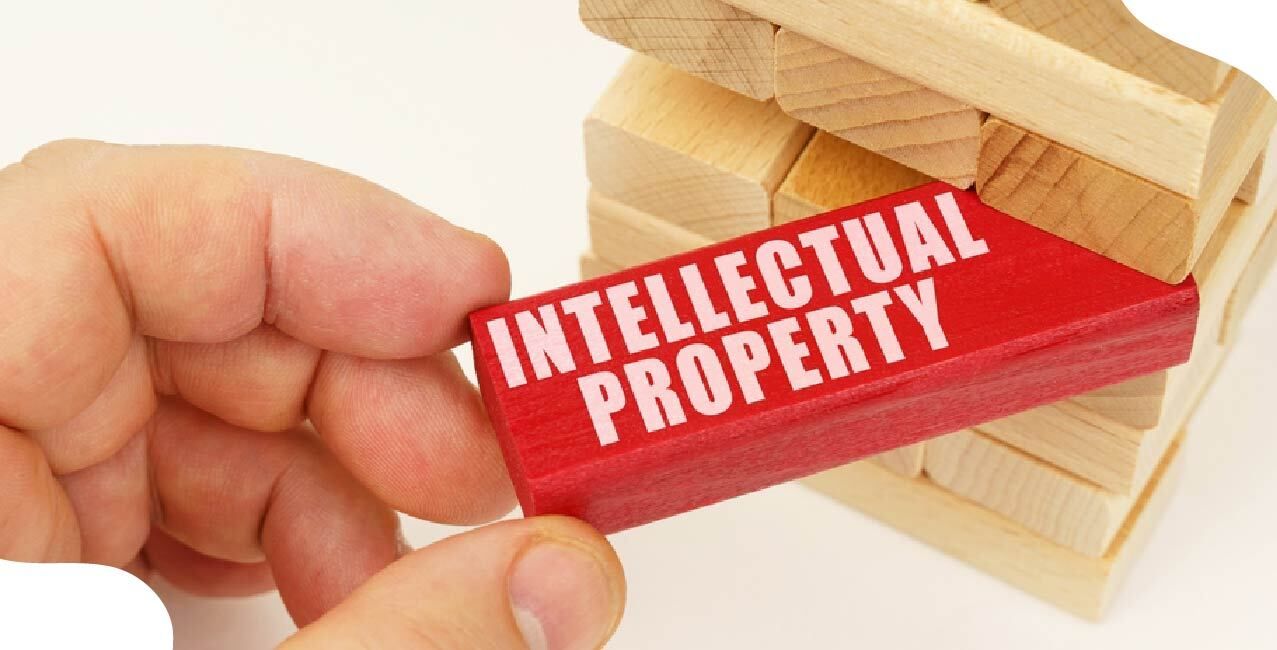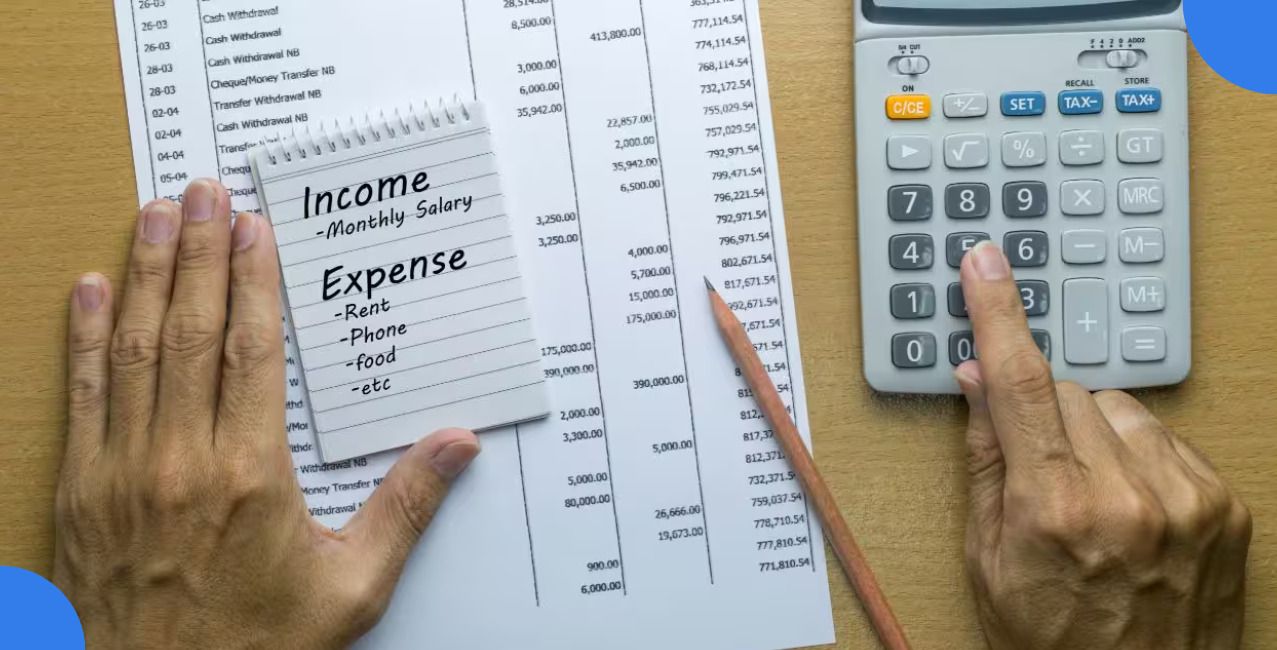What are Intellectual Property Rights? Types, Importance & Examples

Check Your Loan Eligibility Now
By continuing, you agree to LoansJagat's Credit Report Terms of Use, Terms and Conditions, Privacy Policy, and authorize contact via Call, SMS, Email, or WhatsApp
Intellectual Property Rights (IPRs) protect your inventions, artworks, logos, and designs. They ensure others can’t copy, use, or profit from your work without permission.
You invent a smartphone that not only takes calls and selfies but also brews a cutting chai in 2 minutes. You name it, the “Chaiphone Pro Max Masala Edition.” You plan to sell it for ₹29,999, and by the time you are at Shark Tank, you would have already sold 10,000 units/month.
With your innovative pitches, viral ads, you become the next tech billionaire.
But just when you're about to launch it, your neighbour Bunty copies your idea and names it "Chaify". He launches it online, sells it at just ₹19,999 and becomes a meme sensation overnight. You? Still sitting with the prototype and a heartbreak stronger than elaichi chai.
To protect creators like you, the Indian Constitution grants you Intellectual Property Rights.
It is a legal way of saying, “Aye! This creation is mine, and you can’t copy, sell, or profit from it unless I say so.” After all, it’s your brain and hard work. Let’s explore this right and its types in detail.
What are Intellectual Property Rights?
Intellectual Property Rights (IPRs) are legal rights granted to creators over their inventions, artistic expressions, trademarks, and designs. These rights give creators exclusive control, like patents, copyrights, trademarks, and trade secrets. This prevents others from using their work without permission.
How Important are IPRs?
IPRs aren’t just fancy laws. They are equally as important as the Right to freedom, equality and justice. Dabur can sell the health and personal care products because IPRs protect their prototype. Now, you realise how important IPR is? Let’s see more reasons that make it super important and beneficial for you.
Encourages Innovation
‘Innovation matlab SOMETHING NEW, not SOMETHING’S COPY!’
If inventors didn’t get protection, they would all give up and become food vloggers. But because of IPRs, people feel safe to create. They know no one can legally steal their idea for 20 years (in case of patents). This results in more gadgets, apps, medicines, songs…yay humanity!
Economy Growth
‘Wallet aur GDP dono khush!’
Countries that protect IPRs well tend to earn more, create more jobs, and attract investors like bees to honey. Companies with patents and trademarks often have higher profits and better brand value. So yes, protecting ideas = more money, for you and your country.
Helps Share Ideas
‘Baatnein se innovation aur paisa badhta hai!’
Instead of keeping ideas locked in a vault, IPRs let you license or sell them. For instance, a startup needs funding but also does not want to dilute equity. They will let the investors use their ‘formula’ in exchange for royalties. Not only startups, but businesses that want to scale without losing control, use this option.
Builds Brands & Consumer Trust
‘Romance nahi karte, Dance nahi karte, Inko padi hi nahi hai’
You’d trust a product with a legit logo over one called “Guggal” instead of “Google,” right? Trademarks ensure that your brand identity is protected and customers don’t get confused between you and a fake one. ‘Akhir brand value bhi cheez hoti hai bhai!’
Read More –What is Business Law: Meaning, Importance & Key Legal Areas
Types of IPR
Detail each major category with a brief description and real-world For example,
Patents
‘Archimedes khush hua! Eureka, Eureka!’
Archimedes’s buoyancy is an abstract idea. Hence, it can’t be patented. But the genetically engineered microorganisms could be patented! Patents give you VIP passes for your inventions. Once you get a patent for your innovations, nobody else can copy, make, or sell them for up to 20 years.
They cover how a product works (utility), looks (design), or even special plant varieties. With such a kind of protection, any inventor would go wild with innovation without fear of being copied.
For example, a pharma company invents DrugX to treat chronic migraine and patents it. For 20 years, they have been selling it for ₹10/tablet without competition. This way, they earn ₹3,00,00,000 - ₹4,00,00,000 and receive funding for more research. Guess who got the maximum benefits? The patients!
Trademarks
‘Naam toh suna hi hoga!’
Everyone knows Starbucks, but if another café uses a similar name like Sardarbuksh, won’t some customers get confused and go there? That is why trademarks are so necessary.
Trademarks protect your brand identity, like logos, names, taglines, and even sounds! They help consumers recognise your product and make sure Bunty next door doesn’t sell shoes with your logo upside down. Unlike patents, with a trademark, your creations are protected forever, well, at least until you renew it!
For example, we have all seen Nike's swoosh or Coca-Cola’s script font, right? Now, even if someone sells cold drinks for ₹40 or shoes for ₹40,000, they can’t legally use these symbols. These symbols belong to the original creators and are trademark protected forever (as long as you renew).
Copyrights
‘Mere 2 seconds ki clip kyu churayi?’
You must have heard about the ANI vs YouTube Content Creators case. You may ask how ANI could attack these creators legally just for using a few seconds of clips. Well, that is because of copyright clips.
Copyrights protect original songs, books, paintings, films, software, YouTube videos, and basically anything creative. The protection lasts for your entire life plus 50–70 years (so your grandkids get royalty too!).
For example, J.K. Rowling owns copyright over the 7 Harry Potter books. That means no one can legally print, adapt, or profit from Harry, Hermione, or even Hogwarts without her permission. The copyright lasts for 60 years after her death under UK law. That’s a long time. You won’t find much fiction related to these characters as compared to BTS.
Trade Secrets
‘Paise ko nahi, recipe ko Z+ security do bhai!’
If I had known how to make McDonald's Big Mac Sauce, I would sell it all around the seasons in my garage. ‘Paisa hi paisa hoga!’ But, sadly, I can’t because such recipes, secret formulas, algorithms or techniques are confidential info. As long as the companies guard them, they are protected. No expiry!
For example, though Coca-Cola sells for ₹40 (on average), its formula has been locked in a vault for over 130 years. Only a handful of people know it. If someone else finds it out by hacking or cheating, they’re in big legal trouble!
Industrial Designs
‘Aapka design classy aur humara First Class Copy!’
Crocs sued Bata because they believed that Bata had copied their sandal designs. However, the Delhi High Court has ruled out any such claim due to a lack of originality and prior design publication.
Though Crocs couldn’t win the legal battle but from this case we can learn how well they protect the look and feel of their product. From its shape, style, and colours to surface finish, everything yours is yours to own.
For example, the smooth, rounded body of the original iPhone (launched in 2007) is a fantastic example. It was registered as an industrial design under more than 200 design patents. So, if someone tried to sell a copycat iPhone lookalike, they’d get sued faster than you can say “Steve Jobs”. Try it for yourself!
Geographical Indications (GIs)
‘Vridavan ke mashhoor pede Vrindavan se hi!’
Also Read - How to Register a Company – Step-by-Step Registration Process
During the wedding of Anant Ambani and Radhika Merchant, everyone was talking about ‘the tamatar chaat’ from Banaras. You’ll be surprised that products with unique taste, quality, or fame from specific places are protected under GIs. Nobody else can use that name unless it’s from that region.
For example, Darjeeling tea was GI-tagged in 2004-2005. So only tea grown in Darjeeling's 87 tea estates, covering about 17,500 hectares, can legally use the “Darjeeling” label. If someone tries to pass off Lucknow ki chai as Darjeeling, it’s a legal offence, not just bad taste.
Plant Variety Rights (PVRs)
‘Tu kya kheton ka hero banega?’
Plant Variety Rights, aka PVRs, protect breeders who develop new, unique, uniform, and stable plant varieties, like special rice or chilli types. These rights grant exclusive control over selling the variety (seeds, cuttings) for 15–25 years, depending on crop type.
For example, IARI scientists developed Pusa Arhar-16, a high-yield, early-maturing pigeon pea variety. Registered under the PPV&FR Act, it grants exclusive commercialisation rights for 15 years.
Conclusion
IPRs protect your creativity because, without them, you could be the next Tony Stark while Captain America gets all the credit. Sure, teamwork is great, but stealing ideas? Not cool.
That’s why you need a legal shield to keep your secret recipe a secret and your brilliant ideas profitable!
Frequently Asked Questions
1. What are intellectual property rights and their types, and their importance?
IPRs legally protect creators’ inventions, brands, art, and designs (patents, trademarks, copyright, trade secrets, industrial designs, GI, PVRs). They encourage innovation and economic growth.
2. What are the 7 types of intellectual property rights?
Key IPR types include patents, trademarks, copyrights, trade secrets, industrial designs, geographical indications, and plant variety rights.
3. What is an example of a patent?
The Global Positioning System (GPS) was patented by Roger Easton in 1974. It is essential for navigation and location-based services.
4. What is the WTO agreement for intellectual property rights?
TRIPS (Trade-Related Aspects of Intellectual Property Rights) is the WTO agreement setting the global IP protection standard.
5. Is Bluetooth patented?
Bluetooth technology is patented. That means wireless connectivity inventions are well protected from unauthorised use for approximately 20 years.
Other Related Pages | |||
About the author

LoansJagat Team
Contributor‘Simplify Finance for Everyone.’ This is the common goal of our team, as we try to explain any topic with relatable examples. From personal to business finance, managing EMIs to becoming debt-free, we do extensive research on each and every parameter, so you don’t have to. Scroll up and have a look at what 15+ years of experience in the BFSI sector looks like.
Subscribe Now
Related Blog Post

Salaried vs. Self-Employed: Who Gets a Personal Loan Faster in 2025?

Too Many EMIs? What to Do When Monthly Payments Become Unmanageable

Post Office Customer Care Number: Helpline & Support
Recent Blogs
All Topics
Contents
Quick Apply Loan
Consolidate your debts into one easy EMI.
Takes less than 2 minutes. No paperwork.
10 Lakhs+
Trusted Customers
2000 Cr+
Loans Disbursed
4.7/5
Google Reviews
20+
Banks & NBFCs Offers
Other services mentioned in this article





